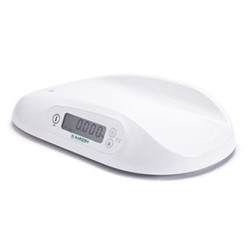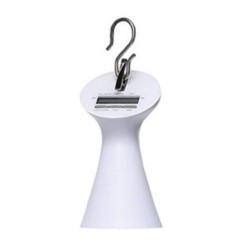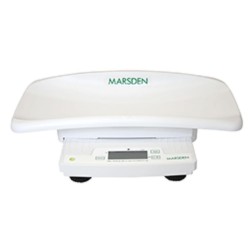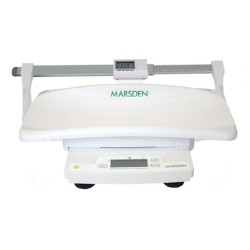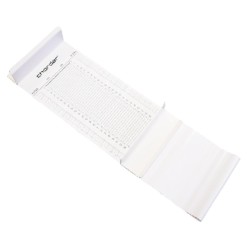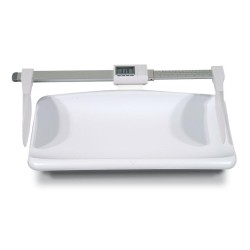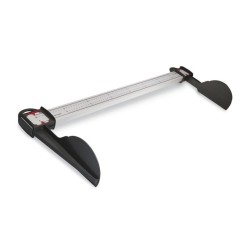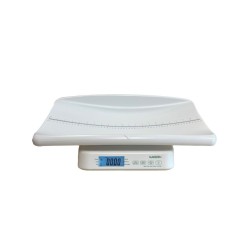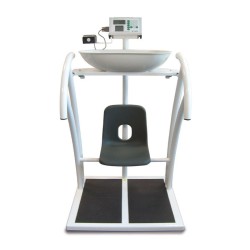Professional Baby Scales
There are 9 products.
Active filters
About Professional Baby Scales
Precise Infant Weighing for Growth Monitoring and Clinical Care
Professional baby scales provide specialised weighing equipment essential for monitoring infant growth, detecting feeding issues, and supporting clinical decision-making across hospitals, maternity units, GP surgeries, health visitor clinics, and community midwifery services throughout England, Scotland, Wales, and Northern Ireland. These purpose-designed weighing devices feature secure infant platforms preventing falls, highly accurate mechanisms detecting small weight changes, appropriate capacity ranges for newborns through toddlers, and clear displays facilitating quick reading during active infant weighing. Healthcare professionals rely on baby scales for applications including birth weight recording establishing baseline measurements, regular weight monitoring tracking growth progress, feeding assessment detecting inadequate intake, illness monitoring identifying significant losses, and developmental screening forming part of child health surveillance. Modern professional baby scales incorporate features including tare functions enabling weighing with blankets or nappies, stable platforms accommodating active infants safely, rapid weight stabilisation reducing weighing time, and data connectivity transferring measurements to electronic records. The availability of accurate baby scales supports early detection of growth concerns, enables appropriate interventions supporting infant health, and demonstrates professional clinical practice meeting paediatric care standards across healthcare environments.
The provision of appropriate professional baby scales directly supports CQC compliance through accurate infant monitoring, early problem detection, and demonstration of appropriate equipment provision meeting paediatric standards. Inaccurate baby weighing compromises infant care through failure to detect faltering growth indicating feeding problems or illness, inappropriate concern from falsely abnormal weights causing parental anxiety, and compromised clinical decisions based on unreliable data. Professional baby scales address these challenges through high-precision weighing detecting changes as small as 5-10 grams, consistent accuracy across the weight range supporting trend analysis, and appropriate platform designs enabling safe infant positioning. Clinical evidence demonstrates that regular baby weighing enables early detection of conditions including inadequate breastfeeding requiring support, dehydration during illness necessitating intervention, and faltering growth indicating underlying health problems. Healthcare organisations benefit from reliable baby scales through confident clinical assessment based on accurate data, appropriate use of specialist services through timely referrals based on concerning weights, and reduced parental anxiety through professional measurement approaches. Modern baby scales incorporate safety features including raised platform edges preventing infant falls, smooth surfaces facilitating cleaning, and stable bases resisting tipping throughout England, Scotland, Wales, and Northern Ireland.
Selecting and implementing professional baby scales requires consideration of clinical requirements, appropriate equipment specification, and establishment of quality assurance protocols across healthcare facilities throughout the UK. Organisations should evaluate their infant weighing needs determining required frequency, assess clinical requirements identifying necessary features such as very high accuracy for neonatal units or basic accuracy for routine child health surveillance, and consider practical factors including portability for community use or fixed installation for clinic settings. Equipment selection should prioritise medical device certified scales meeting paediatric accuracy standards, appropriate capacity typically 20kg accommodating infants through toddlers, clear displays readable during active weighing sessions, and robust construction withstanding clinical use. Implementation protocols must encompass staff training on correct scale operation including proper infant positioning, tare function use for clothing, and appropriate result interpretation. Quality assurance measures should include regular calibration maintaining accuracy typically annually using certified weights, cleaning protocols preventing cross-contamination particularly important in infant care, and monitoring of weighing practices ensuring consistent technique. Modern baby scales incorporate features such as growth chart printing providing parent-friendly records, rechargeable batteries enabling portable use, and UNICEF Baby Friendly Initiative compatible features supporting breastfeeding. Organisations should establish weighing protocols standardising procedures across health visitors and other staff, determine appropriate weighing frequencies following national guidance, and provide parent education about normal weight variations reducing unnecessary anxiety. Clinical teams should consider special populations including premature infants requiring extremely accurate weighing, babies with medical conditions necessitating frequent monitoring, and cultural sensitivities around infant weighing practices. Documentation systems should integrate weights with child health records and growth charts. By maintaining calibrated professional baby scales and implementing evidence-based weighing protocols, healthcare organisations throughout England, Scotland, Wales, and Northern Ireland demonstrate their commitment to CQC standards, infant safeguarding through growth monitoring, professional paediatric practice, and the provision of accurate measurement enabling early problem detection and appropriate interventions supporting optimal infant health and development across all care settings.

